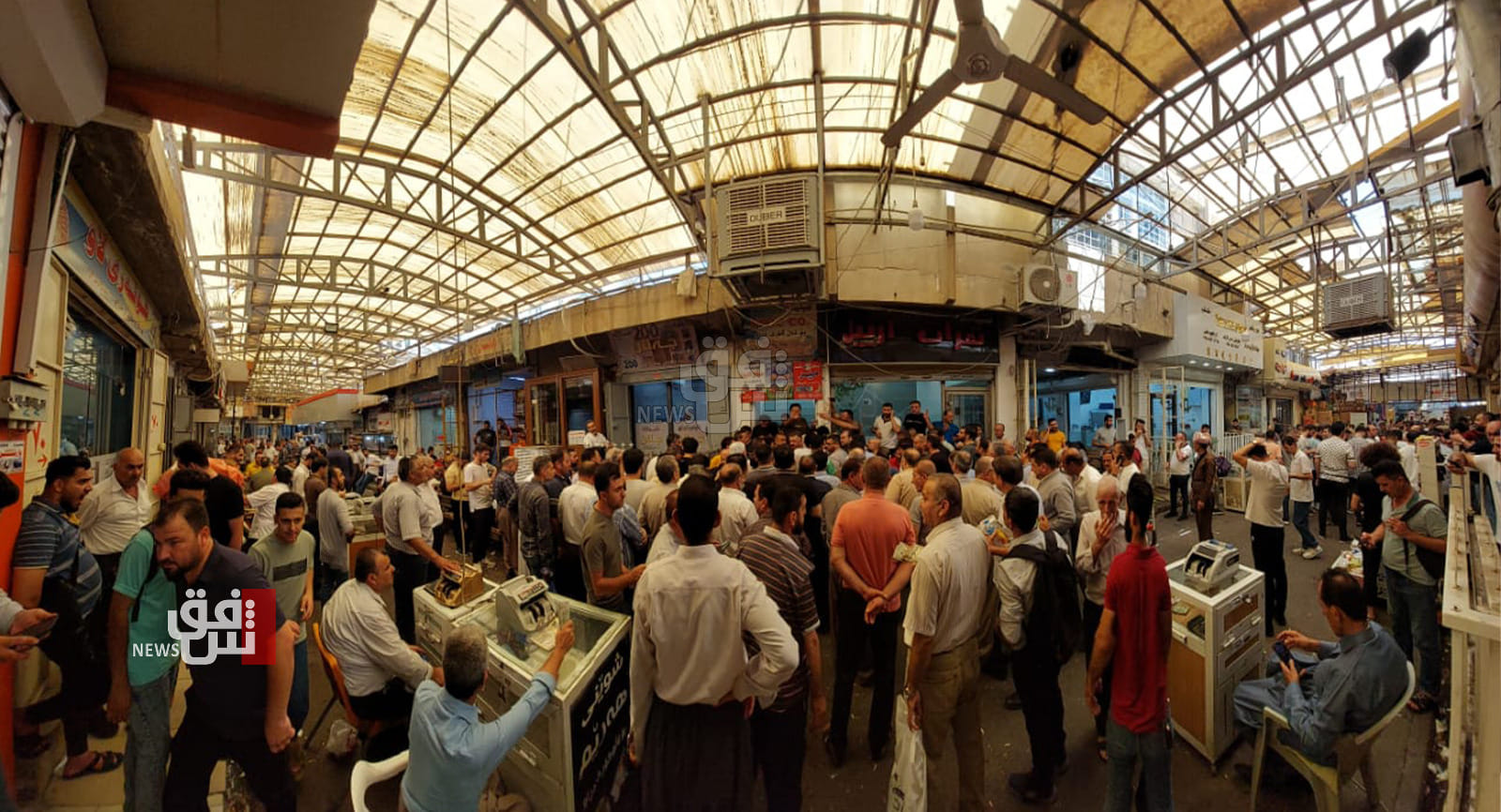The crisis of the rise of the dollar returns to the fore… and an upcoming parliamentary procedure
The crisis of the rise of the dollar returns to the fore… and an upcoming parliamentary procedure
2023-07-21 01:44
 Shafaq News/ The Parliamentary Finance Committee confirmed, on Friday, its intention to host the Governor of the Central Bank and the Minister of Finance during the next week, to find out the reasons for not controlling the parallel exchange rate.
Shafaq News/ The Parliamentary Finance Committee confirmed, on Friday, its intention to host the Governor of the Central Bank and the Minister of Finance during the next week, to find out the reasons for not controlling the parallel exchange rate.
The parallel price means the exchange rate of the dollar in the market and exchange offices, and not the official rate set at 1132 dinars per dollar, according to the decision of the Board of Directors of the Central Bank of Iraq, which was approved by the Council of Ministers.
The exchange rates of the US dollar rose against the Iraqi dinar, in the Baghdad markets, and in Erbil, the capital of the Kurdistan region, after Washington imposed sanctions on 14 Iraqi banks.
As the Al-Kifah and Al-Harithiya stock exchanges recorded, with the closing, yesterday evening, Thursday, 150,900 dinars for 100 dollars, while in Erbil it recorded 151,000 dinars for every 100 dollars, and the purchase price was 150,950 dinars for 100 dollars.
In this context, member of the Finance Committee, Moein Al-Kadhimi, told Shafaq News agency, “The government tried to control the exchange rate, by reducing the dollar from 145 to 130, and was able to provide remittances to countries to which remittances can be sent.”
Al-Kadhimi added, “But there are other countries from which Iraqi merchants import, and US sanctions prevent sending these remittances, forcing these merchants to obtain dollars from the parallel market.”
He explains, “Which leads to the dollar’s price remaining high in this market, and with the recent measures of the US Federal Reserve not to deal with a number of private banks, it had an impact on the dollar’s price rise, to reach 155.”
Regarding the procedures of the Finance Committee in this regard, Al-Kazemi confirms, “There will be a hosting of the Governor of the Central Bank and the Ministry of Finance during the next week, to find out the real reasons for the inability to control the parallel price.”
A member of the Finance Committee explains, “The lack of control over the parallel price is due to the sanctions imposed by the United States on countries such as Iraq, Syria, Iran, Lebanon, and even on some Turkish companies, which leads to an increase in the black market demand for the dollar.”
On Wednesday, the US Treasury Department imposed sanctions on 14 Iraqi banks in a crackdown on Iran’s dollar transactions.
The Wall Street Journal quoted US officials as saying that “the move came after the disclosure of information indicating that the targeted banks were involved in money laundering and fraudulent transactions.”
The newspaper added, “Some of these operations may relate to individuals subject to sanctions, which increases fears that Iran will benefit from them.”
A senior US official told the newspaper: “We have strong reason to suspect that some of these money laundering operations may benefit either individuals covered by US sanctions, or persons who may be covered by sanctions.”
“The main danger of sanctions in Iraq is definitely related to Iran,” the US official added.
Shafaq News agency learned that the sanctions affected “banks (the Islamic Advisor for Investment and Finance, the Islamic Al-Qartas for Investment and Finance, as well as the Islamic Spectrum, Elaph Bank, Erbil Bank for Investment and Finance, the International Islamic Bank, Pan-Iraq Bank, Mosul Bank for Development and Investment, Al-Rajeh Bank, Sumer Commercial Bank, Trust International Islamic Bank, Ur Islamic Bank, Islamic World Bank for Investment and Finance, and Zain Iraq Islamic Bank for Investment and Finance.”
And the US Treasury Department prevented four other Iraqi banks from accessing the dollar last November, and also imposed, in cooperation with the Central Bank of Iraq, stricter controls on financial transfers in the country in general.
In the past weeks, the Central Bank of Iraq had excluded 4 private Iraqi banks from the currency sale auction (namely: Al-Ansari, Al-Sharq Al-Awsat, Al-Qabid, and Asia) following directives and warnings from the US Treasury about these banks accused of smuggling currency.
shafaq.com